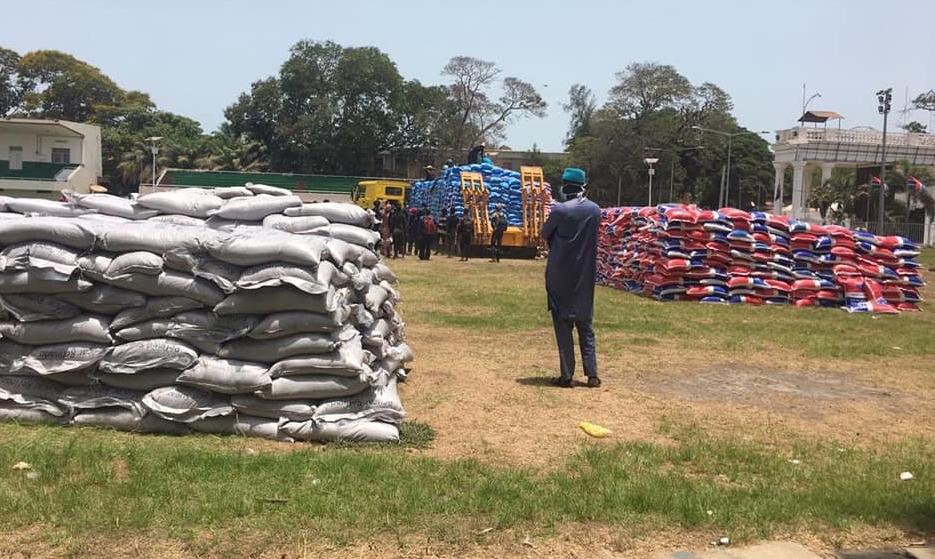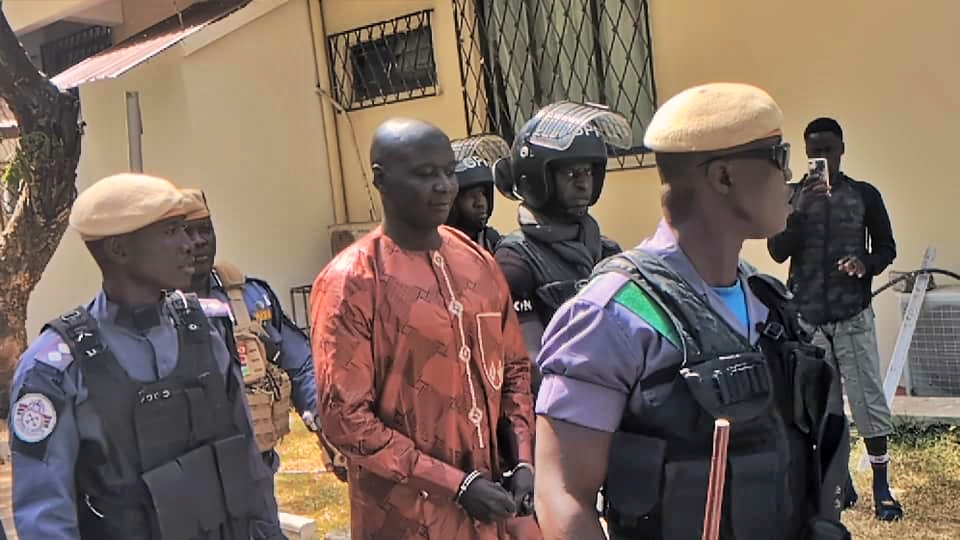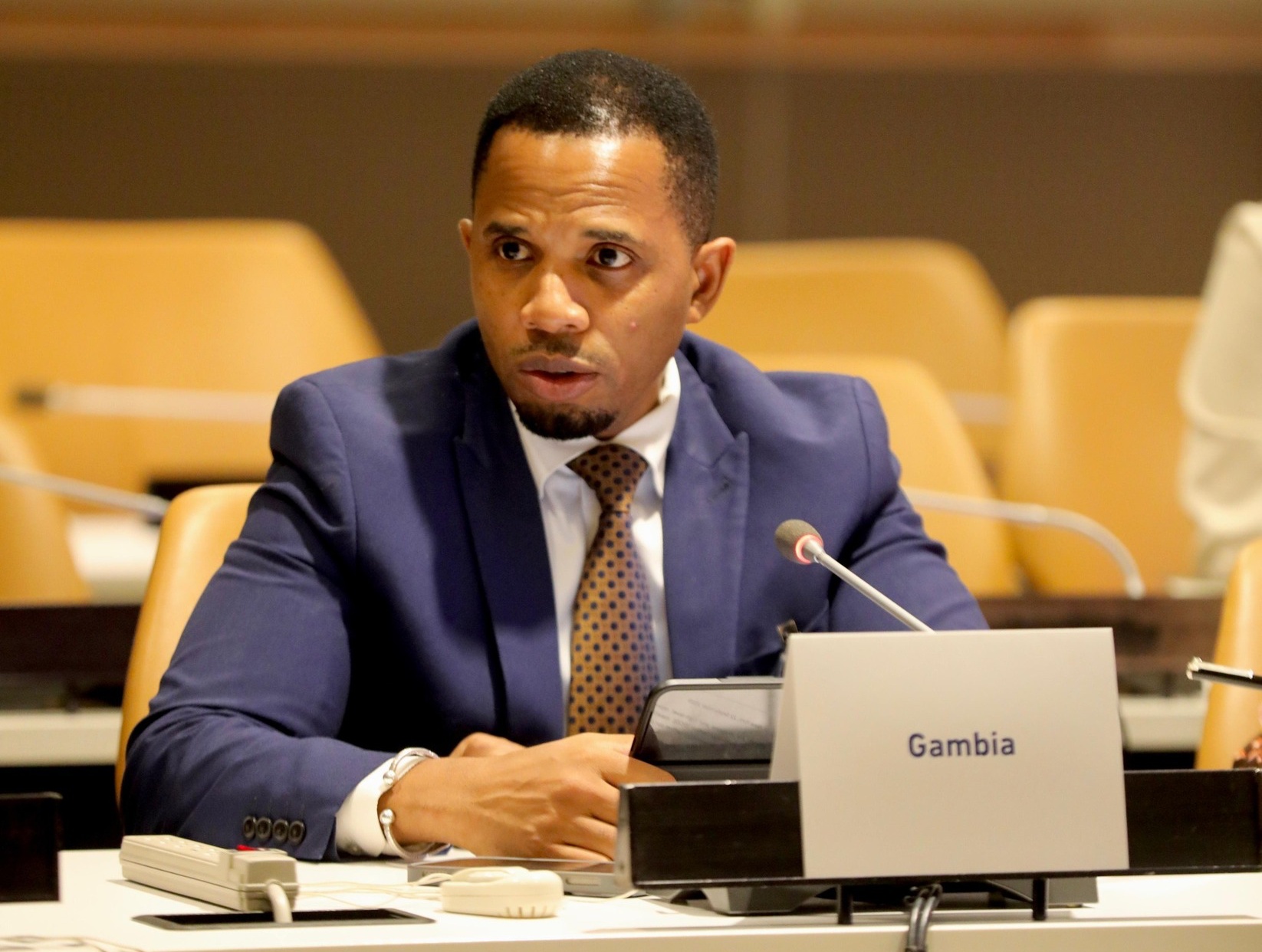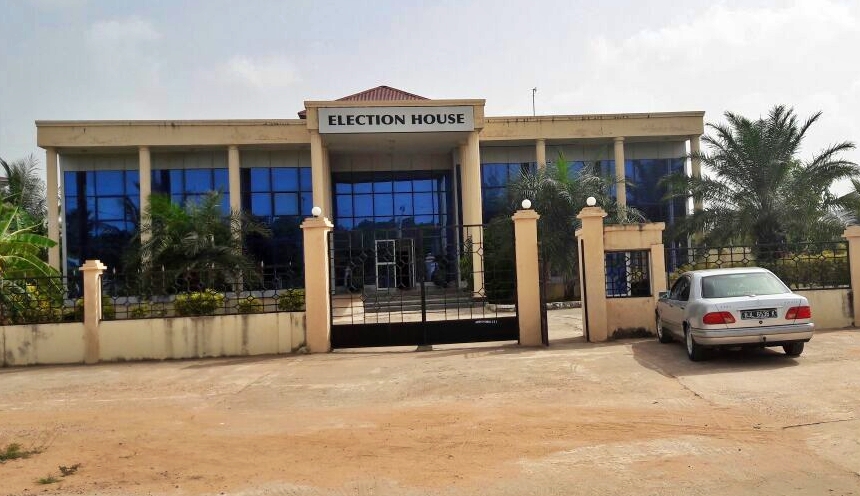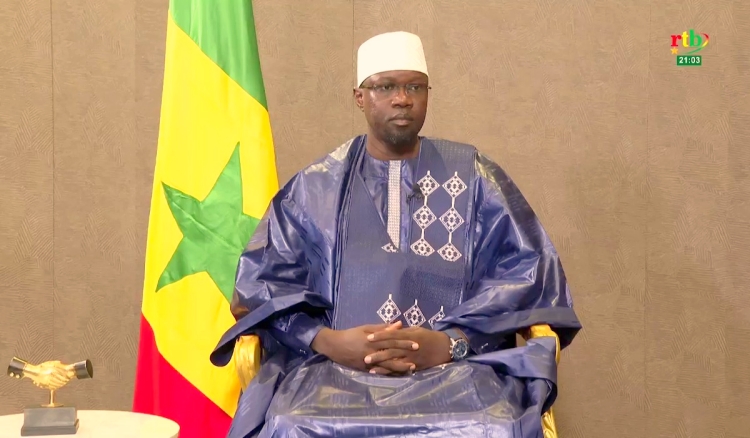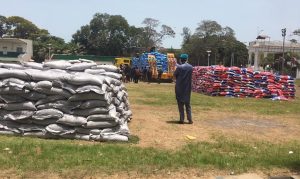Gambiaj.com – (Dakar, Senegal) – Prime Minister Ousmane Sonko’s blistering critique of ECOWAS and its handling of regional crises has exposed a widening gap in tone and strategy between him and President Bassirou Diomaye Faye, complicating Senegal’s position as a potential mediator amid West Africa’s deepening political fractures.
In a televised interview with Burkina Faso’s RTB on Monday, May 19, Sonko launched a scathing rebuke of the Economic Community of West African States (ECOWAS), singling out what he described as “fundamental errors” in its response to recent coups in Mali, Burkina Faso, and Niger — the three countries now forming the Alliance of Sahel States (AES).
“The embargo that was made against Mali is unacceptable,” Sonko declared, referencing punitive sanctions imposed on the country following its 2021 military takeover. “A country like Senegal should never have accepted it. If we were in power then, we would not have done so.”
His comments, described by observers as unusually candid for a sitting head of government, were accompanied by a broader denunciation of what he called ECOWAS’s selective silence and double standards.
“Why, when people manipulate constitutions or persecute opponents, does ECOWAS remain silent?” he asked, accusing the organization of reacting too often with “press releases, embargoes, and threats of military intervention” rather than addressing the root causes of political unrest.
Though Sonko expressed hope for long-term reconciliation — asserting that “we have a common destiny” — his rhetorical salvo complicates the diplomatic posture of President Faye, who has taken a more restrained and conciliatory approach in his dealings with ECOWAS and the breakaway AES bloc.
Since taking office in April 2024, President Faye has been seen as a potential bridge between ECOWAS and the AES trio, all of whom are currently suspended from the regional body.
He has advocated for reform within ECOWAS but has avoided direct public confrontations or blame-laying, choosing instead to emphasize dialogue and structural renewal.
Sonko’s statements arrive at a particularly delicate moment, as President Bassirou Diomaye Faye is an official mediator capacity between ECOWAS and the AES states.
The regional bloc is currently engaged in quiet diplomacy aimed at coaxing Mali, Burkina Faso, and Niger back into the fold. President Faye, co-opted by fellow heads of state as part of those efforts, has thus far preferred behind-the-scenes persuasion over public criticism.
“The President is walking a diplomatic tightrope,” said a senior Senegalese diplomat, speaking on condition of anonymity. “He needs to reassure ECOWAS leaders of Senegal’s commitment to regional unity while also acknowledging the growing sentiment that the organization must change. Sonko’s remarks don’t make that balance any easier.”
Sonko, long known for his anti-establishment rhetoric and popular appeal among Senegalese youth, appears to be sticking to his political roots even as he wields state power. His words reflect a broader wave of frustration across parts of West Africa, where ECOWAS is increasingly viewed as out of touch with popular grievances and too deferential to incumbent regimes.
Yet critics warn that such uncompromising language risks undermining Senegal’s credibility as a neutral broker. “If you want to mediate, you cannot start by taking sides so openly,” noted Aissatou Diagne, a regional governance analyst. “There’s a difference between acknowledging the need for reform and publicly chastising the institution you’re supposed to help reform.”
Whether Sonko’s remarks will derail Senegal’s mediating efforts remains to be seen. But what is clear is that Dakar’s dual leadership is sending mixed signals at a time when West Africa needs clarity, unity, and tact.




